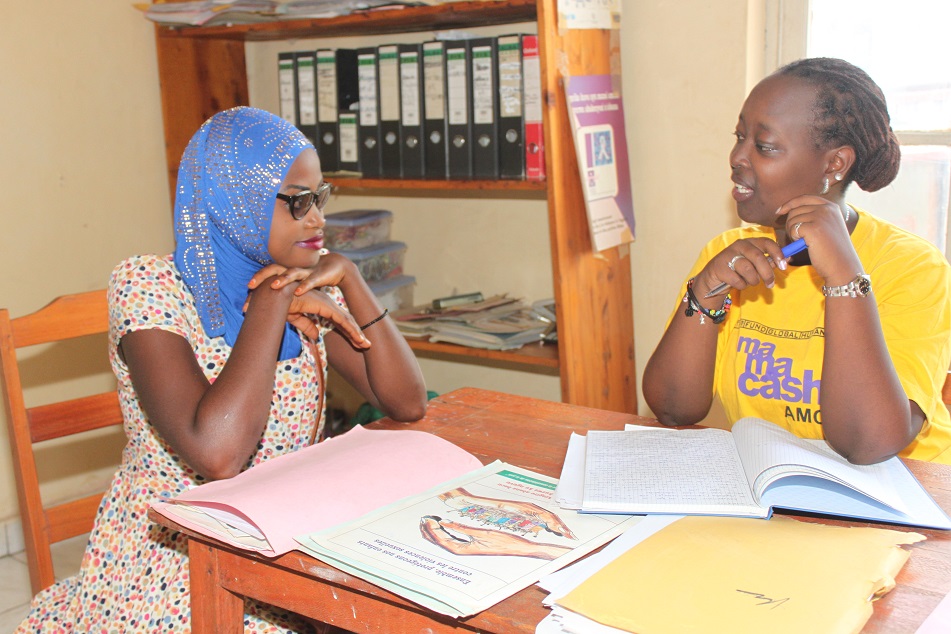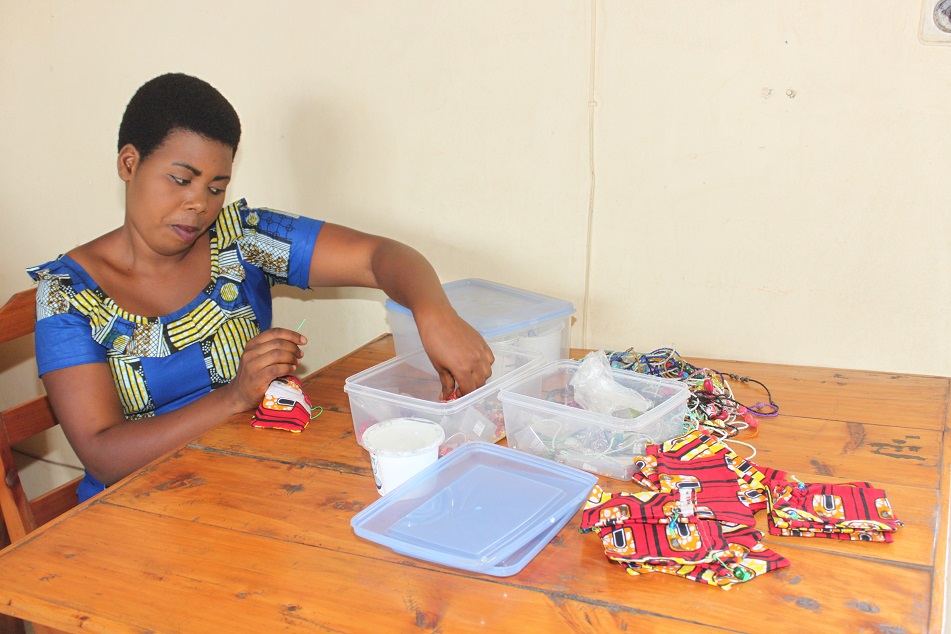This article was published more than 7 years ago.

From the global women’s marches to the #MeToo movement, it’s been quite a year for women in activism. As we close out 2017, the Fund for Global Human Rights is honoring women like Pamella with our #ShePersists campaign—a series of stories that showcase the courage, strength, and resilience of the women human rights defenders we support around the world. Donate here to support activists like Pamella and read on for her inspiring story.
With its conservative gender norms, struggling economy, and limited social programs, Burundi is a difficult place to be a young, single mother. When an unmarried woman or girl becomes pregnant, she is often shunned by her family, cast out of her community, and told not to return to school. Cut off from social support systems, she faces daily challenges meeting her basic needs and those of her child.
That’s the bad news. The good news is, thanks to people like Pamella Mubeza, the situation is changing.
A pioneering local leader and women’s rights activist, Pamella has dedicated her life to shifting Burundi’s cultural norms around sexual and reproductive health and single motherhood. In 2004, she founded the Association of Single Mothers for Peace and Development (AMC), a grantee of the Fund for Global Human Rights that works across Burundi to prevent teenage pregnancy and support young mothers.
It’s a cause born out of Pamella’s own lived experience.
“I became a single mother at university and realized the sheer number of single mothers who were being abandoned in Burundi. It pushed me to do something,” she recalled in an interview with the Fund. “I wanted to help women become economically independent, understand what their rights were, and distinguish their legal rights from culturally entrenched traditions.”
Pamella also wanted to address the education gap facing young women and girls. With sex being a taboo topic in Burundi, access to information about sexual and reproductive health is limited. She realized that basic sexual and reproductive health education could help single mothers like her, while also reducing the number of young women and girls having early or unplanned pregnancies. “Why can’t we save these women from having to go through so much by just teaching them how to not become pregnant?”

Using Local Knowledge to Bypass Community Taboos
Thirteen years since its founding, AMC is still tackling the root causes of teenage pregnancy by educating young women and girls about their sexual and reproductive health, and empowering those who are already single mothers to take greater control of their lives. The organization runs a sexual health resource center, operates a mobile clinic for women in remote communities, and establishes community-based support groups where single mothers connect with, educate, and encourage each other.
As a locally-rooted and locally-led organization, AMC uses approaches in their work that are culturally relevant and truly resonate with the women they serve, allowing AMC to circumvent obstacles that international nongovernmental organizations (NGOs) might not be aware of.
“As a way to get girls to come and talk to us, we offer them sanitary pads, soap, or creams,” Pamella explained. This strategy achieves three objectives. It prevents women and girls who cannot afford these items from being exploited or losing out on school or work due to their periods. It attracts women to attend AMC’s programs, opening the door for AMC staff to talk about sexual and reproductive health. And it disguises trips to AMC as routine health visits, protecting women and girls from the stigma associated with sexual and reproductive health.

Displaced but Never Defeated
Over the years, AMC’s programs have changed the lives of hundreds of single mothers and helped prevent countless teenage pregnancies. But with Burundi now in crisis, Pamella and her colleagues are facing major challenges.
In April 2015, Burundian President Nkurunziza announced he would run for a contested third term, sparking a political crisis that continues today. Since then, hundreds of people have been killed, often at the hands of security forces, and over 400,000 people have fled the country. Among those forced to flee are Pamella and her three children, who escaped to Rwanda in the early days of the crisis. Despite the heartbreak and distress of having to leave her home, Pamella has managed to keep the doors of AMC’s sexual health resource center in Burundi open.
“The people we serve are still there, and there are lots of them,” she said. “Other organizations that were helping [them] have had to close down, so there is an increased demand, even though we have reduced capacity.”
Pamella’s grit has enabled her to keep the resource center afloat while in exile—at a moment when it is direly needed. Pamella has also expanded AMC’s work into Rwanda, where AMC is now running a mobile clinic and establishing community-based support groups, with an emphasis on aiding young Burundian women in refugee camps.
“When there is crisis and conflict in a country, [women and girls] are affected twice over. There are the existing problems they were facing, and the additional problems of being forced to flee, a lack of income, and [the issue of] rape and sexual violence being used as a weapon of war and conflict,” explained Pamella. “When you’re displaced, you’re [also] at a much higher risk of sexual exploitation, as a young girl with no means is more likely to fall victim to sex work.”

In It for the Long Haul
Despite their best efforts, the political environment in Burundi has hampered some of Pamella and her colleagues’ work. Their core programs around sexual health services remain intact, but other initiatives have been threatened.
“A large part of our work used to be helping girls get back in school, and that is something we’ve really had to slow down because we can’t apply pressure in the same way we would before,” said Pamella. With President Nkurunziza’s administration hyper-sensitive to criticism, “Everything has become politicized. If you put too much pressure on the government, they can take you for the opposition and there are risks, even though we are only talking about women and girls’ rights,” she said.
Nevertheless, Pamella persists. Meanwhile, the Fund remains a steadfast ally, providing AMC with the long-term flexible financial support it needs to conquer challenges as they arise, and as they see fit.
“The Fund supports our own activities, and it’s very different with other donors. Other donors give us small grants to lead and implement their agendas. The Fund allows us to support our own vision,” said Pamella, who believes the Fund’s support is more than just financial. “Our [Program Officer] Tony is not just a funder, he is also a partner. He follows our work very closely and asks us the right questions. He takes the time to actually listen to us. I can see that he really cares about what we are doing.”
It’s a role the Fund is proud to play, and one we are committed to continue to fill. Because if Pamella can persevere against all odds, the least we can do is stick with her.



